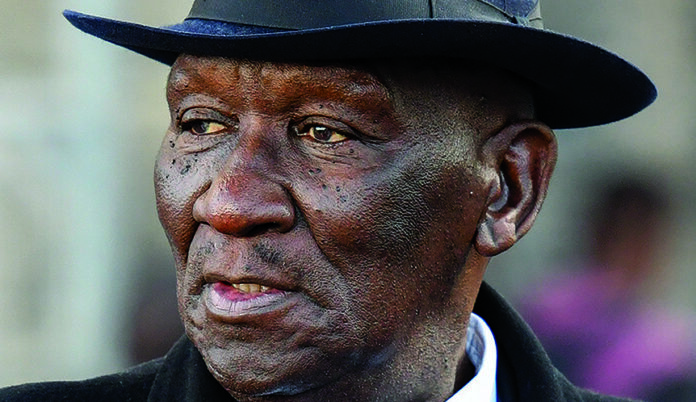The year 2023 will be recorded in the history books as one of the worst South Africans would dread to remember due to failures by their leaders to reach out to them at their darkest hours of need.
But as it is always the case, some leaders have disappointed us the most.
Therefore, below are the five leaders who take the cake when it comes to disappointing South Africans.
Bheki Cele
SA under Bheki Cele ranks the third most dangerous place in the world.
Why on earth is our president keeping Cele on the job of keeping citizens from harm’s way when evidence points to a minister whose capacity to run an efficient police ministry is non-existent.
Statistics do no not lie.
The Institute of Economics and Peace recently published its Global Peace Index for 2023. SA is regarded as one of the most dangerous countries in the world.
Violence cost South Africa R3.30-billion in 2022, which represents 15% of the country gross domestic product.
Scarier, the country is the rape capital of the world, with 10 818 rapes reported in the first quarter of 2022 – five times higher than the global average.
In 2022/23, the risk of being murdered was highest in Eastern Cape, with a rate of 71 killings per 100 000. Next highest were KwaZulu-Natal and Western Cape, both with annual murder rates of 56. South Africans are unsafe under Cele’s watch.
Pravin Gordhan
When President Cyril Ramaphosa appointed Pravin Gordhan Public Enterprises Minister in 2018, many expected him to hit the ground running.
After all, Gordhan was an old hand in cabinet and was expected to deal decisively with challenges plaguing SOEs.
He had previously served as minister of finance and cooperative governance and traditional affairs.
However, Gordhan, who still blames state capture for his failures, has been nothing but underwhelming.
State-owned entities like Eskom and Transnet have been collapsing under his control while the turnover rate of chief executives has also been high.
The high volume of trucks on the road due to Transnet’s rail collapse has resulted in high carbon emissions and soaring transport costs.
Rand manipulation cartel
When the story on banks that are involved in the currency manipulation scandal broke in 2015, most of the financial institutions denied they were involved.
This was despite overwhelming evidence and public anger against almost 30 implicated banks. Though the jury is still out on the negative effects of rand manipulation scandal, it started at a period when interest rates were rising due to high inflation, hitting households and businesses hard.
The economy has been struggling to recover since.
However, three banks have trickled in, confessing their sins on the role played in the cartel.
Absa was the first bank to blow the whistle, followed by US’s Citibank, which coughed up R69.5-million, and British lender Standard Chartered was fined R42.7-million for its role in the currency manipulation.
This while the other banks remain hell-bent on not wanting to tell the truth and pay for their sins.
The behaviour of the financial institutions has resulted in the case dragging on for years while public discontent and trust deficit grow.
Thembinkosi Lorch
Orlando Pirates star Thembinkosi Lorch is a serious contender for Moegoe of the Year after he was found guilty and convicted for assaulting his girlfriend Fundiswa Mathithibala.
He was sentenced to three years imprisonment for assault with intent to cause grievous bodily harm in the Randburg magistrate’s court.
The sentence was wholly suspended for five years on condition that Lorch is not found guilty of committing the similar offence during the period of suspension.
This is at the time the country is besieged by issues of GBV and role models like Lorch, who millions of kids look up to, should carry themselves in an exemplary manner.
The Buccaneers also sent a strong message when they suspended him for three weeks from all club activities.
Danny Jordaan
Safa president Danny Jordaan deserves the accolade after one of the most disastrous periods for the national association.
There is no money in the coffers of the national association; there has been endless retrenchments; the corporate world does not want to touch them and broadcast deals are depleting.
The association still cannot shrug off allegations of the R500-million Fifa Legacy Fund mismanagement – and is still unsettled by the overtures of retired Lucas Radebe expressing desire to one day becoming the president of the national association.
Their bid to host the 2027 Fifa Women’s World Cup collapsed like a pack of cards, with Sports Minister Zizi Kodwa suggesting there is a leadership crisis at Safa.



